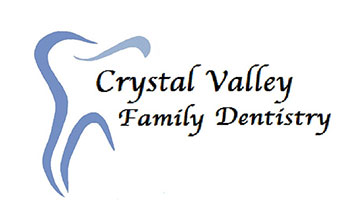
What is Periodontal (Gum) Disease?
Periodontal disease (gum disease) is caused by bacterial plaque that has been left gums. The bacteria multiplies and spreads while attacking your gums and even your jaw bone in the later stages.
Periodontal disease is very common but also easily preventable. In its early stages, the disease is usually painless and shows little to no symptoms.
On top of being the leading cause of tooth loss, there is research that has found a possible link between periodontal disease and other serious diseases. Tobacco products can also contribute to the disease.
Types of periodontal disease:
Gum disease is extremely common, and most people don’t even realize they have it! This is a reason why it’s important to have regular dental cleanings and check-ups. Gum disease (in its early stages) can show little to no symptoms.
Gum disease is caused by excessive bacteria, usually as a result of poor oral hygiene. Advanced gum disease can lead to losing teeth and even bone loss.
Stages of gum disease:
-
- Gingivitis: A tell-tale symptom of gingivitis is redness and swelling of the gums. Catch gum disease here to avoid more complicated treatment and surgery in the future.
- Chronic Periodontitis: Symptoms here include receding gums and space forming between the gums and teeth. This is more common in people over 35.
- Aggressive Periodontitis: With aggressive periodontitis, you may notice excess plaque buildup, red and swollen gums, bleeding gums, pus, and bad breath.
- Necrotizing Periodontitis: The most severe type of gum disease. Symptoms of necrotizing periodontitis include tissue damage, damage to ligaments and bone loss. This stage of gum disease is more common in people who smoke, are malnourished, or have a compromised immune system.
Treatment of periodontal disease
The earlier you catch periodontal disease, the better. Your periodontist will work on getting rid of the bacterial infection and give you instructions on what to do at home.
At later stages, scaling may be needed to remove the plaque and calculus (hardened plaque or tartar) from the teeth and tissues. If the disease has progressed far enough where significant jaw recession has happened, your doctor will remove any un-saveable loose teeth.
Once your mouth is healed and ready, your periodontist can provide a dental implant procedure to restore your mouth’s natural look, feel, and bite.
Common treatments for periodontal disease
- Scaling and root planing: Deep clean below the gum-line to remove trapped bacteria.
- Tissue regeneration: Grafting can be used to speed up damaged tissue regeneration.
- Pocket elimination surgery: As gum disease progresses, more tissue and bone are destroyed. This leaves pockets that plaque and tartar can buildup in. If these pockets are too deep to clean at home, pocket elimination surgery is recommended. They will gently move the gums back from the teeth and clean out the bacteria and calculus.
- Dental implants: If teeth have been lost due to periodontal disease, dental implants are something you can consider. These are metal posts that are surgically inserted into the jaw bone. Using this method for securing artificial teeth allows for a natural feel, look, and bite.
Antibiotic Treatment
If left untreated, periodontal disease can lead to tooth and bone loss. Oral or topical Antibiotic treatments can be incredibly effective at treating the disease.
- Oral Antibiotics: When it comes to gum disease, oral antibiotics are not often prescribed because they can affect the entire body.
- Topical Antibiotic: Antibiotic gel or strips work really well with gum disease because they do not affect the rest of your body. They deliver the medicine directly to the disease and have been shown to be extremely effective, especially after scaling and root planing.
Different antibiotics may have different effects. Talk to your dentist about which one would work best for your situation, or if you have questions about periodontal disease or any of the treatments.


